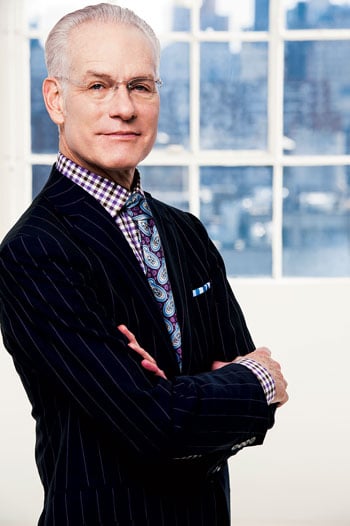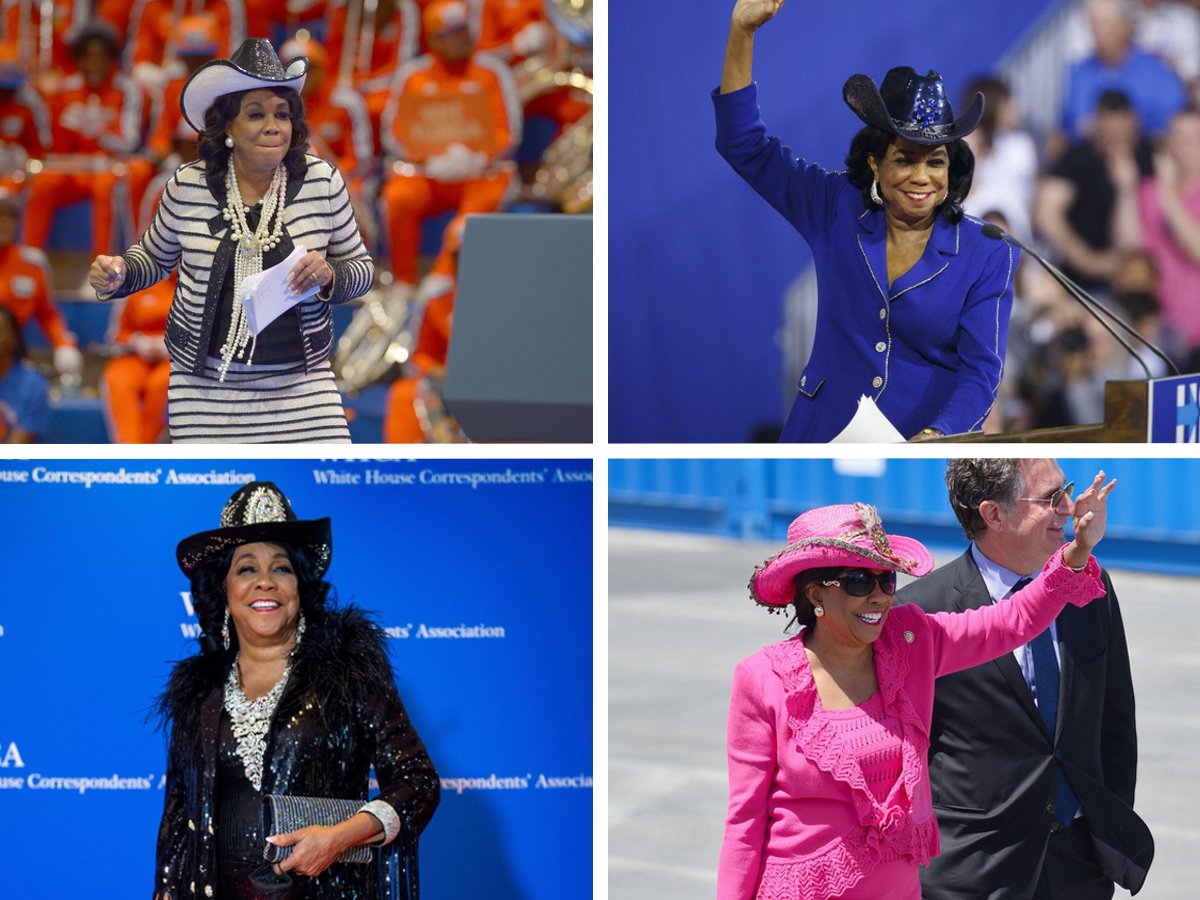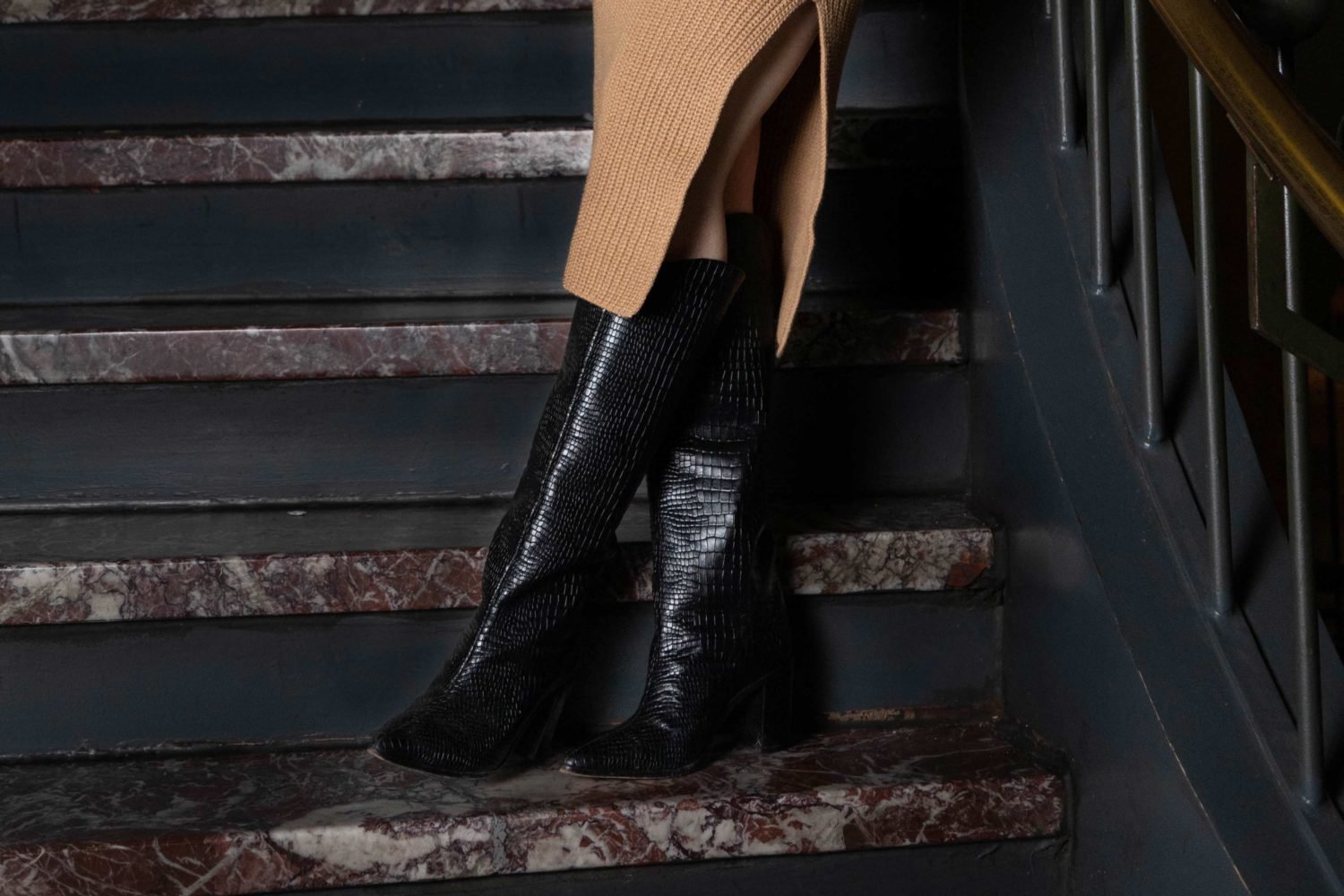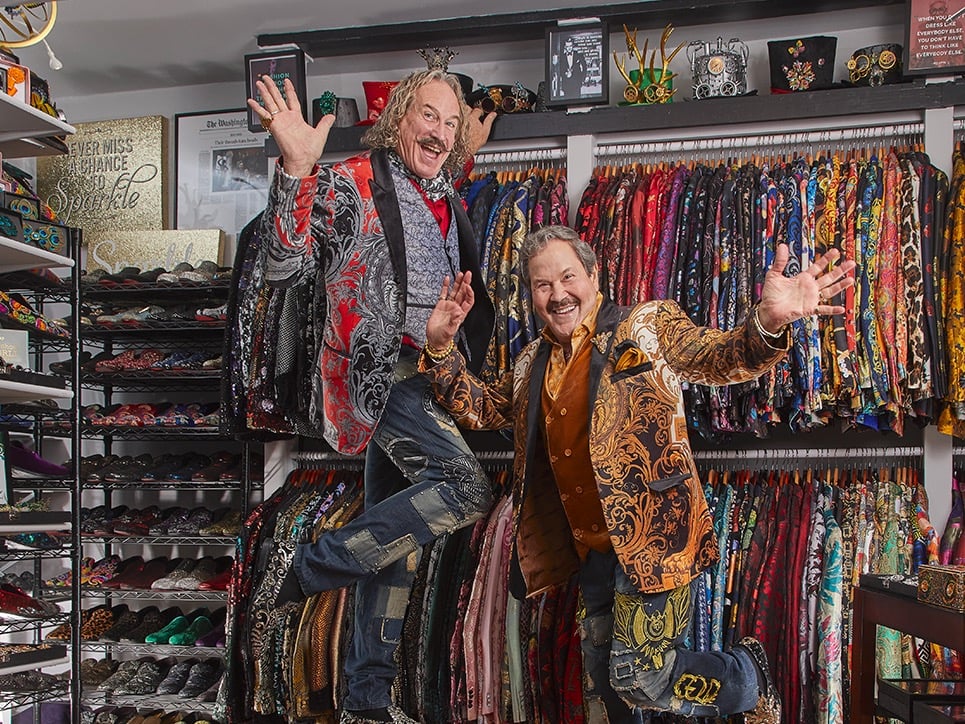
Woodward & Lothrop was my closet. I had nice clothes as a kid because Woodies was relevant and affordable. The store was a barometer for how people in Washington wanted to dress. You went to Hecht’s for appliances, dishwashers, sporting goods, and casual clothing. Garfinckel’s was where you went for great gifts—there was something so glamorous about Garfinckel’s. But most of us shopped at Woodies.
My grandmother once told us about a lovely wedding she had attended. She said something about “Senator Trivet.”
My grandmother was a very politically minded lady, but my mother and sister were confused: “Senator Trivet? From where?”
“From Woodies!” she answered.
We later learned she had been referring to her wedding gift to the bride—she “sent her a trivet” from Woodies.
I never saw my grandmother without a hat. She was just one of those ladies. I remember taking her to Seven Corners in Falls Church because it had a Lord & Taylor. We’d eat at the store’s Bird Cage restaurant, and she knew the store’s manager well. One day, she went to Lord & Taylor to take back a pair of shoes whose heels had worn down. “That’s terrible,” I said. “How long have you had them?” She said, “Three years.” But they took them back.
My mother and grandmother never shopped at Saks. They were extremely opposed to New York. Washington was more conservative—it was more important to blend in than to show off.
My first sales job after graduating from the Corcoran was at Hecht’s. I went through basic training, and they told me I was the only one who’d ever scored 100 on the customer-service test. One of the rules was “under no circumstances do you ever smell the armpits” of a returned item. You didn’t ask questions as long as there wasn’t a stain on it.
My first day, the department manager called in sick. The other sales associate also was sick, so I was alone. I’d never worked the floor before, even though I had all this training. The place was mobbed. And it was the olden days, so nothing was computerized. When people paid with checks, I accidentally put the check number in as “cash received.” The machine kept telling me I owed the wrong amount of change. If items didn’t have a price, I’d ask, “How much would you like to pay?” I didn’t want to inconvenience anyone, and I had been told the customer was always right. The day’s accounting was all screwed up, and it was because of me. The next day I came in, and after about an hour with the manager, I was fired. It didn’t matter that I’d scored 100 on the test—I was the worst.
I left Washington in 1983. At that point, there weren’t a lot of places to go downtown, and it was considered dangerous. You went there only because you worked there. Today you wouldn’t even know it was ever unsafe.
The sales culture in the US says that if you wait another day or two, the item you want will be cheaper. Regrettably, that’s correct. It has had such a negative effect on the retail environment because that’s how we think. In Europe, there are sales twice a year, period.
When I was a kid, you had to go to a store to buy anything. I never dreamed those places would go away. Garfinckel’s was the first to close, in 1990. Then Woodies five years later.
That was too much for my mother. She left town and moved to the beach.
This article appears in the January 2014 issue of Washingtonian.


















